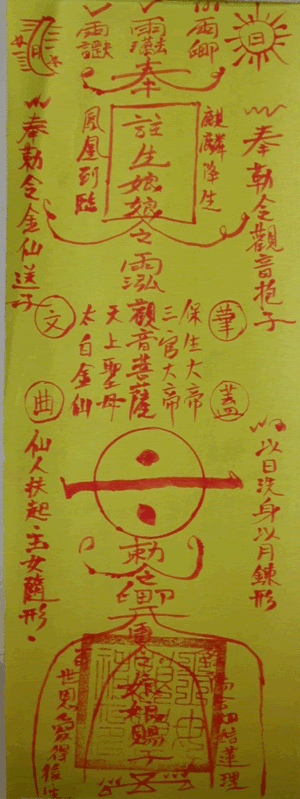
Anyway, shouldn't you be off looking at my YouTube videos again? I put something special up there just for you...


GrahamB wrote: Well, I think it's true to say that his spear work was learned in the army. He never claimed to have learned it from a martial arts master of some kind, and he was actually using his spear to kill the enemy in battle. Battle-tested, as the old saying goes.
JoseFreitas wrote:
I think we're talking of different things.
Yes, he may have "learned" the spear as a soldier, but what he practiced was not the spear he learned, rather the product of his own talent and exploration.
Would he have taught the same thing to soldiers? Probably not, if he was forced to come up with some six week training program to be taught to 1000 soldiers simultaneously. Not to mention the fact that 90% of all the spear methods I know ie. Xingyi and Jing Wu) would absolutely NOT work in a battlefield (there would be no room, I think).
What I'm saying is, one thing is the product on an individual's investigation, the other what he would have to teach as a simplified method. I think most (perhaps all) curricula to be taught to soldiers HAVE to eb dumbed down versions of something else. This is not to say that a talented individual might not expand upon it and develop it.
Have you ever learned at military training manuals (for close combat methods)? It would be a far stretch of the mind to call what is taught there a "martial art". But it might serve as something to expand on, investigate the way of moving, generating power, etc...
Also, let's not forget that Xingyi is based on spear, but it took Ji Long Feng's finding of a secret manual by Yue Fei or secret teacher or whatever to transform it into something else, more advanced. Or so the story goes!









Zhong_Kui wrote:Writings on the matter can be conflicting, and this is not unusual.



Pandrews1982 wrote:See I don't buy the "had to stop carrying weapons" thing that much eithe. Maybe not spears which were a primary military weapon, and maybe not jian either, a prestige weapon. But bows, machetes, staffs etc. all multi-purpose weaponry used for hunting, clearing scrub, climbing hills etc. Plus China is a big place and no dynasty has had full control over all areas and all weapons all the time. I'm sure it might have been more difficult for an ex-ming soldier to openly carry, practice or teach military based weapon methods but I doubt it was impossible. So for Ji Long Feng to drop his spear methods to go emptyhand seems a bit silly, especially if he was wandering around dangerous countryside where he might need to protect himself from bandits or wild animals.

Return to Xingyiquan - Baguazhang - Taijiquan
Users browsing this forum: No registered users and 56 guests